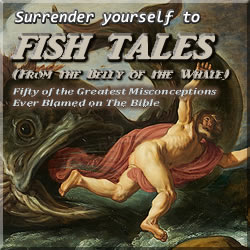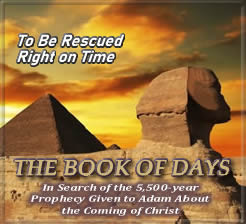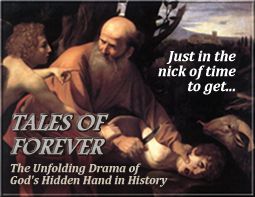The Silence of God (Cont’d)
Because of Everything God Has Made, Mankind Has No Excuse For Not Knowing Him
In the final analysis, any point of theology may be disproved, but what can never be disproved is the self-evident reality of the creation itself. In short, you can debate all you want about the true nature of what you see around you; debate about what causes the Sun to rise, or why the sky is blue, or what makes bodies fall instead of rise. You can debate which came first: the chicken or the egg. Or debate the origins and the mystery of life. However, what you can never debate is that you exist and that the world around you exists—a life and a world filled with vitality, beauty, and grandeur. And no matter how many theological doctrines the cynic can rightly or wrongly dismiss away, the cynic can never dismiss away life itself and the creation.
This is why the Scriptures make a clear distinction between the revelation transmitted via the written word and the revelation transmitted via the creation. Said the Apostle Paul:
They know the truth about God, as He’s made it evident to them, because ever since the world was created, people have seen the Earth and sky. By way of everything that God has made, they can clearly see His invisible qualities, His eternal power, and divine nature, so they have no excuse for not knowing Him.
The Book of Romans
Story Continues Below
Says Richard Price—the founder and CEO of Academia.edu—on his podcast In Depth With Academia:
Conquering the Joy of Cynicism and the Death of Beauty: How Your Worldview Shapes the World You Live In is:
To hear Price’s book review of Conquering the Joy of Cynicism and the Death of Beauty, CLICK HERE.
To watch author and historian W. Kent Smith discuss the contents of his book On Earth as It is On Heaven, at the Sacred Word Revealed Conference ‘23, hosted by Zen Garcia, CLICK BELOW.
Story Continues From Above
Never is humanity said to be without excuse when they disagree with the testimony of Scripture. But ignore the fact that the creation itself bears witness to God’s existence, quite apart from any other testimony offered by humans, and you’ll find yourself suffering the consequences of your indifference. As the apostle continued to explain:
Yes, they knew God, but they wouldn’t worship Him as God or even give Him thanks, so they began to think up foolish ideas of what God was like. As a result, their minds became dark and confused. Claiming to be wise, they instead became fools.
The Book of Romans
What is so intriguing about this statement is that the exact opposite of what we’d expect to happen ends up happening. After all, most everyone would agree that a written testimony of God’s will is more articulate and therefore more understandable than the visual testimony of the creation. But if that’s true, then why would God judge us more harshly when we disregard His revelation via the creation and less harshly when we disregard His revelation via the written word?
Could it be because it’s easier to dismiss a written testimony, although it’s presented in the name of the Lord, than it is to dismiss the physical creation as the work of Almighty God? In other words, it’s easy to convince yourself that a given document is a forgery, even if the message contained in that document claims that God exists and that He has a plan for the recipients of that document. Just demonstrate that said document contains a contradiction or that it contradicts some other text that is itself considered sacred, and that quickly you’ve discredited it. In contrast to this simple exercise, it’s impossible to do the same thing when analyzing the physical processes displayed in nature.
In saying this, I’m not suggesting that documents claimed to be inspired by God are dismissed as easily as detecting a contradiction here or there. As noted earlier, contradictions in biblical works aren’t proof of their inauthenticity any more than when secular works are found to contain them. What I am saying is that they’re simply easier to dismiss and so have less impact on one’s psyche should we convince ourselves that a certain document is a forgery. This apparently is far different from when humanity encounters the works of God in the creation and then suppresses the realization that it couldn’t possibly exist without the Creator’s hand that set it all into motion.







